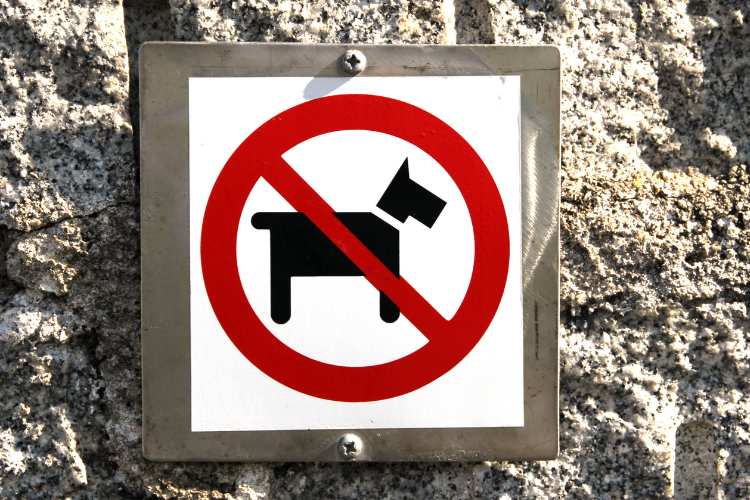Hard truths show why families give up beloved pets.

Every year, millions of dogs end up in shelters across the United States, and behind each one is a story that reflects the intersection of human lives and canine needs. While many families bring dogs home with good intentions, circumstances shift, challenges mount, and bonds that once seemed unbreakable start to fray. The reasons vary—some are rooted in money, others in behavior, and some in life changes no one anticipated. Studies across decades reveal consistent patterns, and animal welfare groups have been documenting these heartbreaking decisions with growing urgency. Each reason shines a light on a bigger problem.
1. Financial struggles make vet care unaffordable.

For many families, the rising cost of veterinary care is the tipping point. Vaccines, spaying or neutering, and treatment for chronic conditions quickly climb into thousands of dollars. The ASPCA reports that financial hardship is one of the most cited reasons for surrender. When rent, groceries, and medical bills pile up, dogs often fall victim to economic trade-offs. It’s not about love disappearing, it’s about survival decisions where the cost of care outweighs the ability to provide it.
2. Housing restrictions force painful choices on families.

Landlords, apartment complexes, and homeowners’ associations frequently enforce pet bans, weight limits, or breed restrictions. As discovered by the Humane Society of the United States, many families are forced to surrender pets after moving into housing that won’t allow them. This is especially common during sudden relocations for work or financial reasons. The heartbreak lies in how powerless owners feel, caught between a roof over their heads and a dog they can’t keep.
3. Behavior problems overwhelm even patient households.

Dogs that bark excessively, destroy furniture, or bite under stress often push families past their limits. According to the American Veterinary Medical Association, behavior issues remain a top reason for surrender. Some problems stem from lack of training, others from anxiety or medical conditions, but the outcome is often the same. When safety, property, or neighborhood peace is at stake, frustrated owners sometimes see abandonment as the only option left.
4. Major life changes disrupt the stability dogs need.

Divorce, job loss, or sudden illness often unravel the support systems that kept dogs safe. A pet that once thrived in a happy home suddenly becomes a burden when routines fall apart. These upheavals ripple into every corner of life, and dogs caught in the middle are often the first to be displaced. For shelters, hearing “my life changed” is one of the most common intake explanations.
5. Unplanned litters overwhelm unprepared families quickly.

Without spaying or neutering, one dog can lead to several, and that sudden multiplication overwhelms households. Families already stretched thin find themselves unable to afford food, vet care, or housing for the extra puppies. Many end up at shelters where overpopulation cycles continue. Communities with low access to affordable spay-neuter services see this pattern repeat year after year.
6. Health issues scare or exhaust their owners.

Chronic illnesses like epilepsy, diabetes, or severe allergies in dogs require ongoing commitment. Some families cannot maintain the schedule of medications, vet visits, and emergencies. Others face fear or uncertainty when a diagnosis feels overwhelming. Owners may feel guilt when surrendering a sick pet, but the reality of long-term medical management can be too much for many households to handle.
7. Aggression turns dogs into a household risk.

When a dog lashes out, whether toward strangers, children, or other pets, families often feel cornered. Training can reduce risks, but not all aggression can be reshaped. Some breeds draw heightened scrutiny from neighbors and landlords, intensifying pressure to give them up. Fear of injury, lawsuits, or city enforcement turns once-beloved companions into liabilities owners feel they can no longer manage.
8. Lack of time leaves dogs isolated and stressed.

Modern schedules filled with long workdays, commutes, and social obligations often clash with the needs of dogs. Hours of loneliness trigger destructive behavior, accidents indoors, or crippling anxiety. Families who underestimated the daily attention dogs require sometimes choose surrender rather than watch stress build on both sides. What was meant to be companionship turns into guilt and exhaustion.
9. Families underestimate the true cost of ownership.

Food, grooming, training, and routine vet care pile up to more than many expect. Some households bring home a puppy believing costs are minimal, only to face hundreds per month in real expenses. When surprise bills arrive—like dental work or flea infestations—many simply cannot keep up. Dogs become unintended victims of poor planning and underestimation of what ownership really requires.
10. Moving across country or overseas cuts ties permanently.

Relocations, especially for work or military service, often force families to part with pets. International moves involve quarantine laws, transport fees, and paperwork that can cost thousands. Even domestic moves to new cities can collide with housing bans. Dogs are left behind not out of choice but out of logistical impossibility, highlighting how mobility in the modern world often collides with loyalty to our pets.
